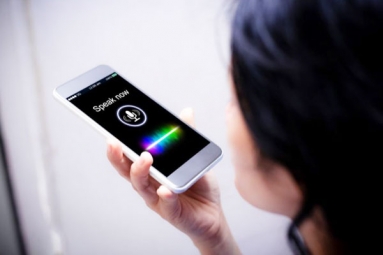Aged People Shared Fake News on Facebook Mostly in 2016 Race: Study
January 11, 2019 07:08
(Image source from: Bgr.in)
During United States Presidential Election 2016, sharing of fake news on Facebook was ungovernable and a study has found that people of age group 65 and older were more active in spreading fake news, compared to other age groups.
The study that quantifies how aggressive seniors were involved in spreading fake news, was published Wednesday in Science Advances, quantifies, though the findings suggest that sharing such stories was relatively few and far between.
According to the study, on average, American Facebook users age 65 and older posted seven times as many articles from fake news websites as adults 29 and younger. And that was true regardless of ideology, education level or political affiliation: older users just tended to share misinformation more.
Related Content: Facebook Messenger to Get 'Dark Mode' Soon in Some Countries
Besides finding that America's seniors were into distorting political discourse, the study's main finding was sharing articles from such disreputable sources was actually pretty uncommon.
"It seemed to have been driven by a relatively small number of people and overall this was just rare," said Andrew Guess, a professor of politics and public affairs at Princeton University and the lead author of the report.
The finding is in line with Guess' erstwhile study, in which he and others found that fake news has had a more constricted impact in America than some people believe.
In the study published Wednesday, Guess and two New York University professors, Jonathan Nagler and Joshua Tucker, found that only about 8.5 percent of Facebook users studied shared even one fake news link.
The authors were cautious in defining "fake news," a term that has been weaponized by many, including President Donald Trump, to brush aside real news they dislike.
"Reasonable people disagree about where to draw the line, and we were very conscious of those issues," Guess said.
As a result, they collected a limited list of sites that faithfully published fake content, based on various sources, including reporting from BuzzFeed News. As best the researchers could tell, the list did not include any websites associated with Russian disinformation efforts, according to Guess.
The Facebook and survey data came from a group of about 3,500 people the authors tracked during the 2016 election to better understand the role social media played in political discourse.
Related Content: Facebook User Needs $1,000 to Quit Platform for One Year: Researchers
They found that Republicans and those who identified as "very conservative" be likely to share the most news from dubious sources. But that tendency may have less to do with ideology and more to do with what those articles said: Users tend to share stories they agree with, and the fake news sites were disproportionately pro-Trump, the authors said.
The study as well found that prolific Facebook users were to a lesser extent probable to post such stories, lending credence to the theory that less active and full-fledged users may have more trouble discerning between fake and real news.
The researchers offered two possible explanations for the findings, though they noted more may exist.
For one, seniors, having come of age well before computers were ever-present, may lack the digital media literacy required to reliably suss out fake sources. Another possible explanation is that memory deteriorates with age, possibly undermining the tools people use to distinguish reality from fiction.
-Sowmya Sangam







